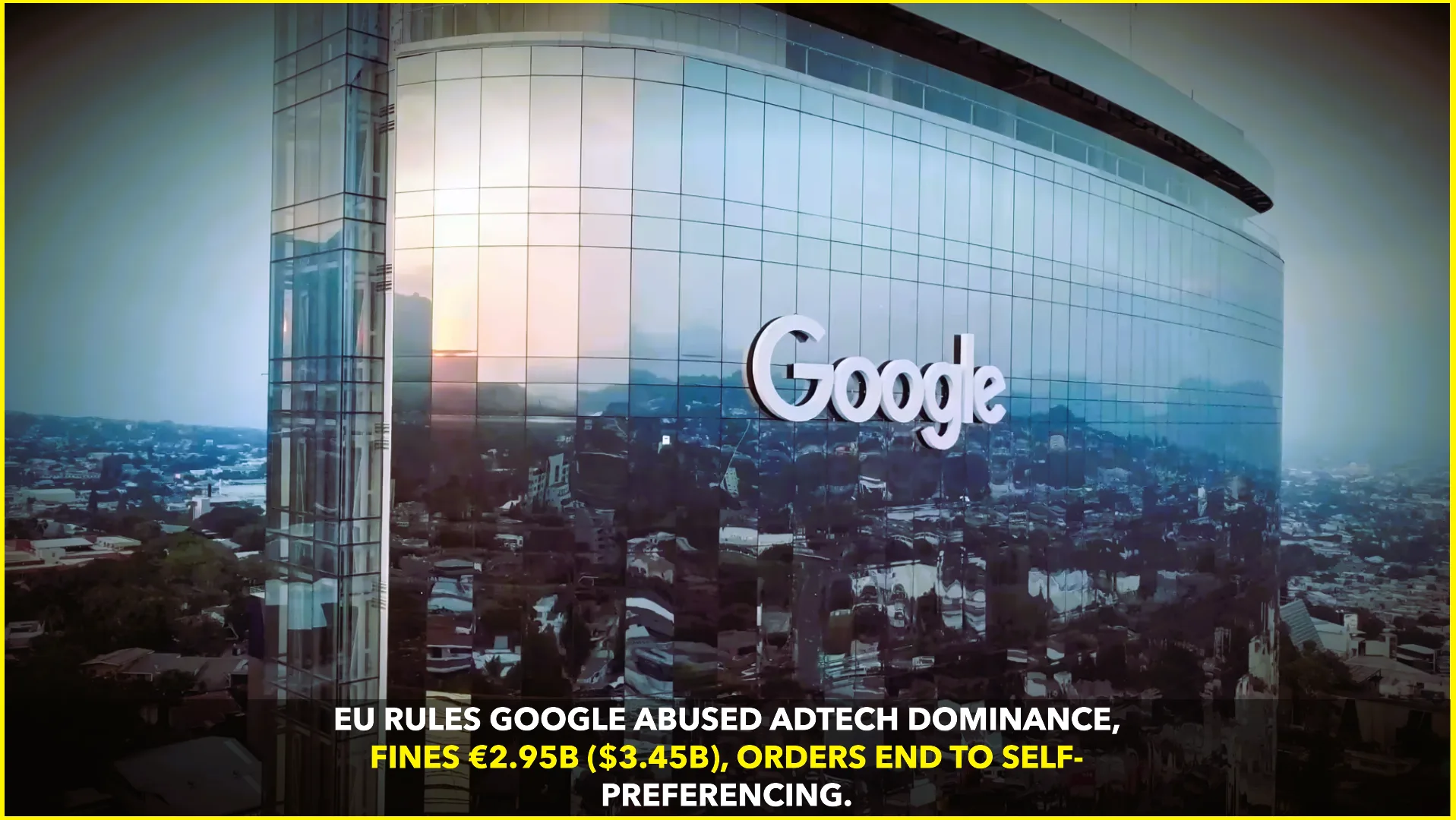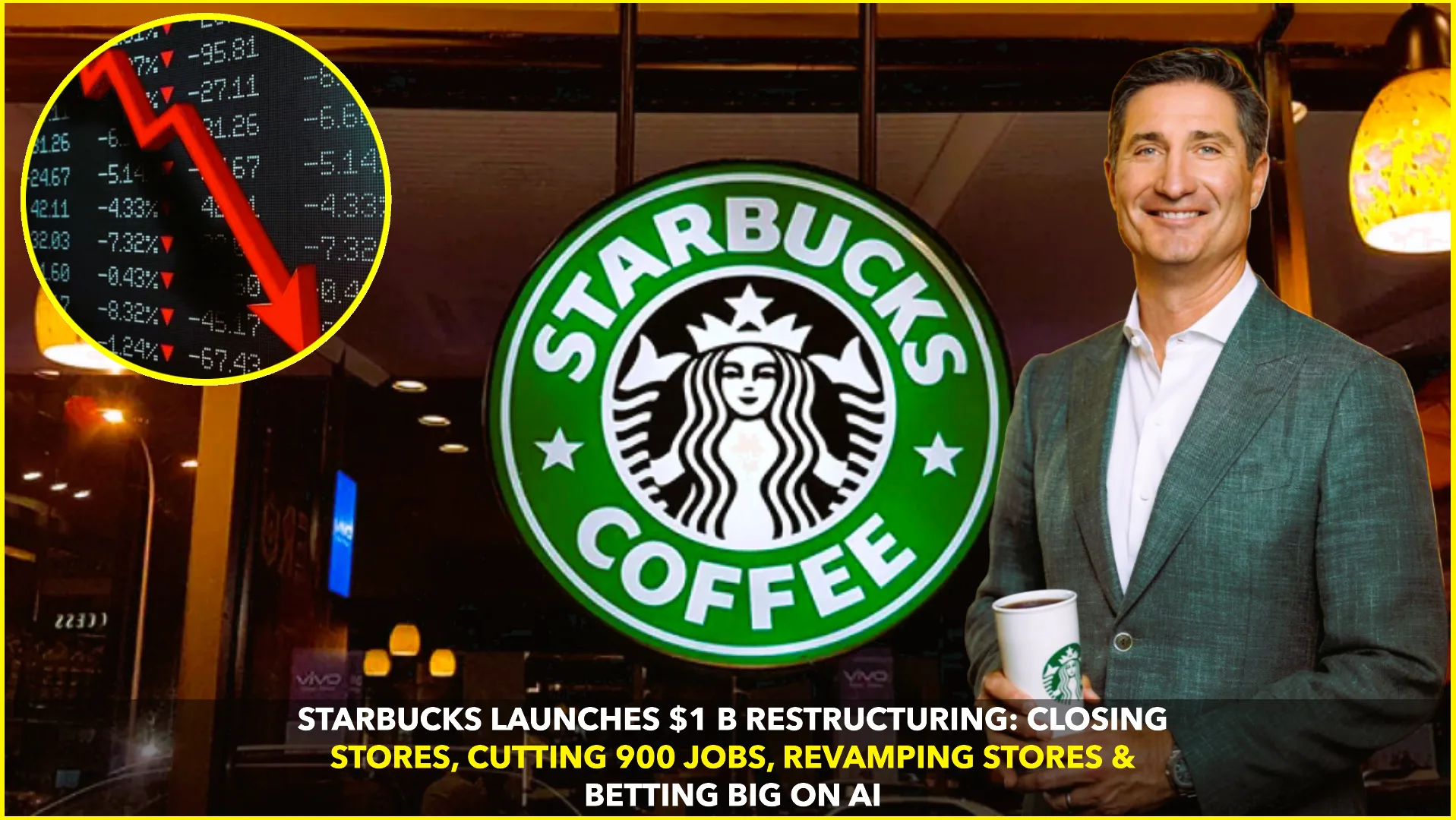The European Commission has ruled that Google abused its dominant position in the ad-tech market, imposing a hefty €2.95 billion ($3.45 billion) fine. Beyond the monetary penalty, authorities have ordered Google to halt self-preferencing practices immediately and propose remedies to resolve conflicts of interest—possibly including structural changes.
The ruling, issued on September 5, 2025, followed a four-year competition investigation targeting Google’s ad exchange, AdX, and its publisher ad server, DFP (Display & Video 360). Regulators found that Google systematically favored its own platforms when serving ads across third-party websites and apps, harming competition, publishers, and advertisers by channeling business to its own ecosystem at their expense.
This penalty marks Google’s fourth major sanction by the EU for antitrust violations. While earlier cases addressed search dominance and online shopping practices, the latest verdict directly tackles digital advertising tools that sit at the heart of the web’s commercial economy AP NewsWikipedia.
What the EU Demands
Google now has 60 days to submit a viable plan to end self-preferencing and to resolve its intrinsic conflict-of-interest issues within the ad-tech supply chain. The Commission has warned that if Google fails to comply, stronger enforcement actions—including structural remedies or business divestiture—will follow.
EU antitrust chief Teresa Ribera stressed that fines alone have rarely prompted real change; what’s needed now are enforceable measures that reshape how Google operates in the ad marketplace AP NewsTechCrunchReuters.
Google’s Response and U.S. Reaction
Google has signaled its intention to appeal the decision, calling the ruling “wrong and unjustified.” A spokesperson, Lee-Anne Mulholland, asserted there is nothing anti-competitive about its services, emphasizing the growing number of alternatives in the ad-tech space AP News+1Reuters.
Former U.S. President Donald Trump reacted angrily, calling the EU decision “very unfair” and discriminatory toward American innovation, announcing potential trade retaliation. He threatened to launch a Section 301 trade investigation aimed at nullifying what he views as punitive action against U.S. tech firms.
Political tensions between Washington and Brussels have already been simmering over digital regulation and trade talks, making this antitrust ruling a flashpoint in a wider debate on sovereignty and market fairness PoliticoLe Monde.frBloomberg.com.
Broader Impact and Global Context
This antitrust case aligns with parallel scrutiny in the U.S., Canada, and the U.K. In April 2025, a U.S. federal judge ruled that Google held an illegal monopoly in the ad-tech space, ordering further remedy hearings, including possible divestitures of parts of its ad-tech empire WikipediaThe Wall Street Journal.
Critics—like the European Publishers Council—argue that monetary penalties alone won’t rein in Google’s market power. They maintain that without structural changes, Google can simply treat fines as the cost of doing business while continuing practices that balloon costs for advertisers and squeeze publisher revenues.
Indeed, EU regulators made clear that if Google’s proposed compliance plan is inadequate, stronger remedies—potentially including forced divestment—will be considered AP NewsReutersTechCrunch.
Why It Matters
- The decision directly addresses self-preferencing: Google’s practice of favouring its own ad platforms across the ad-tech ecosystem.
- It demonstrates Brussels’ increasing willingness to not only fine but demand operational reform of Big Tech.
- It deepens a broader transatlantic struggle over tech regulation, digital sovereignty, and fair market competition.
- It sets a precedent under the Digital Markets Act, which empowers EU regulators to force major platforms to curb preferential treatment and ensure fair access for rivals Wikipedia+1.
Next Steps
- Google must submit its compliance roadmap within 60 days.
- Regulators will assess whether structural remedies—like breaking up parts of Google’s ad-tech unit—are necessary.
- Parallel legal proceedings in the U.S. may reference this EU decision when crafting penalties.
- The global ad-tech industry will be watching closely—this ruling may redefine competitive norms in digital advertising.










